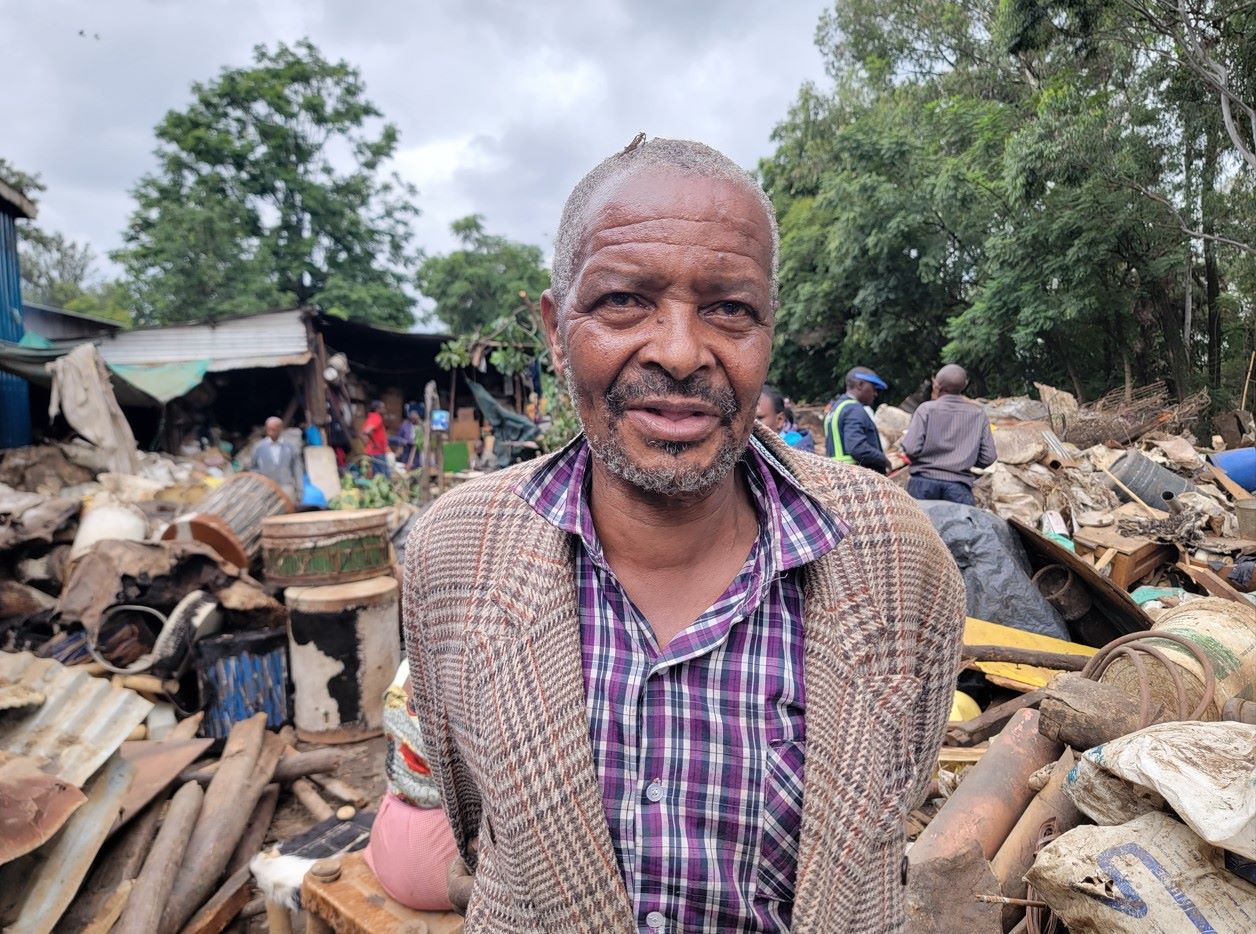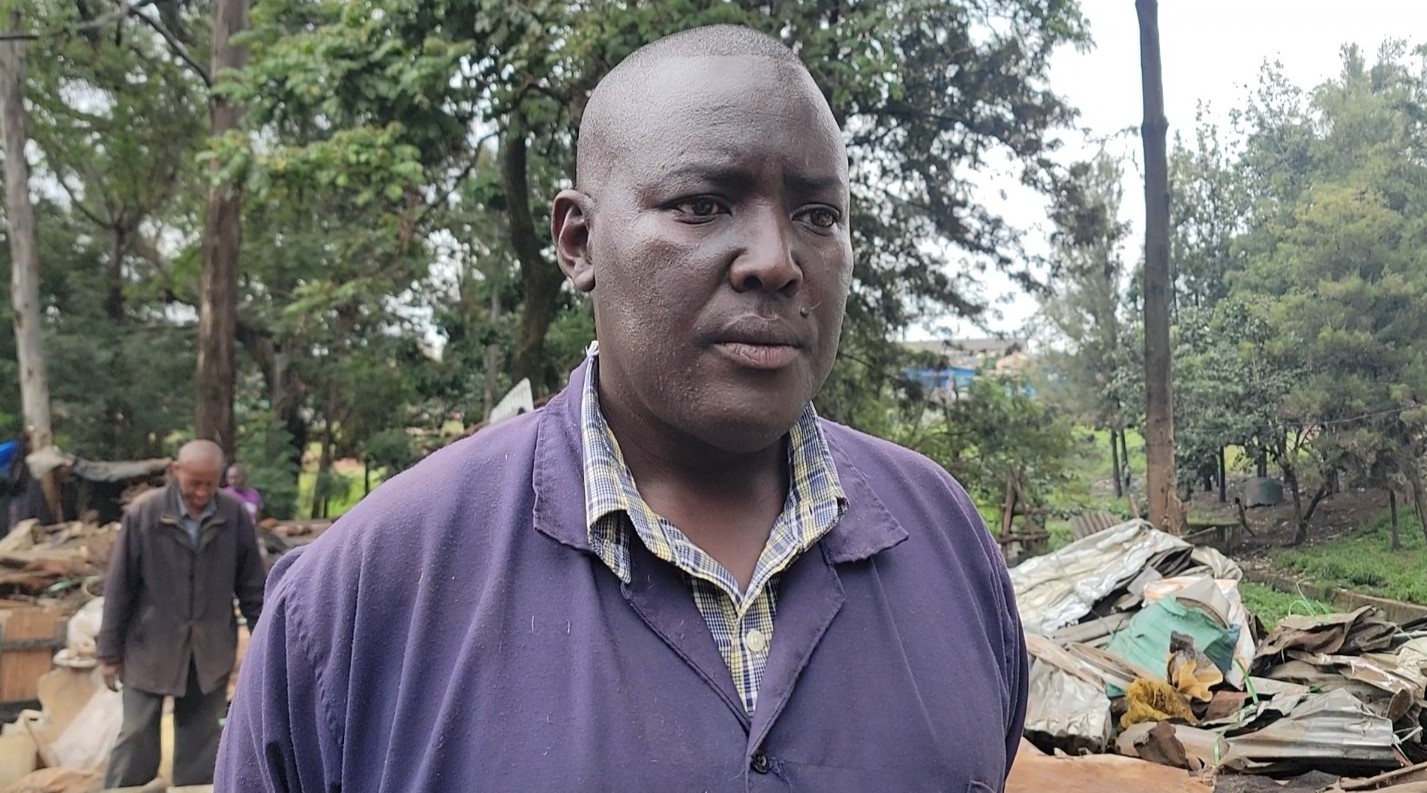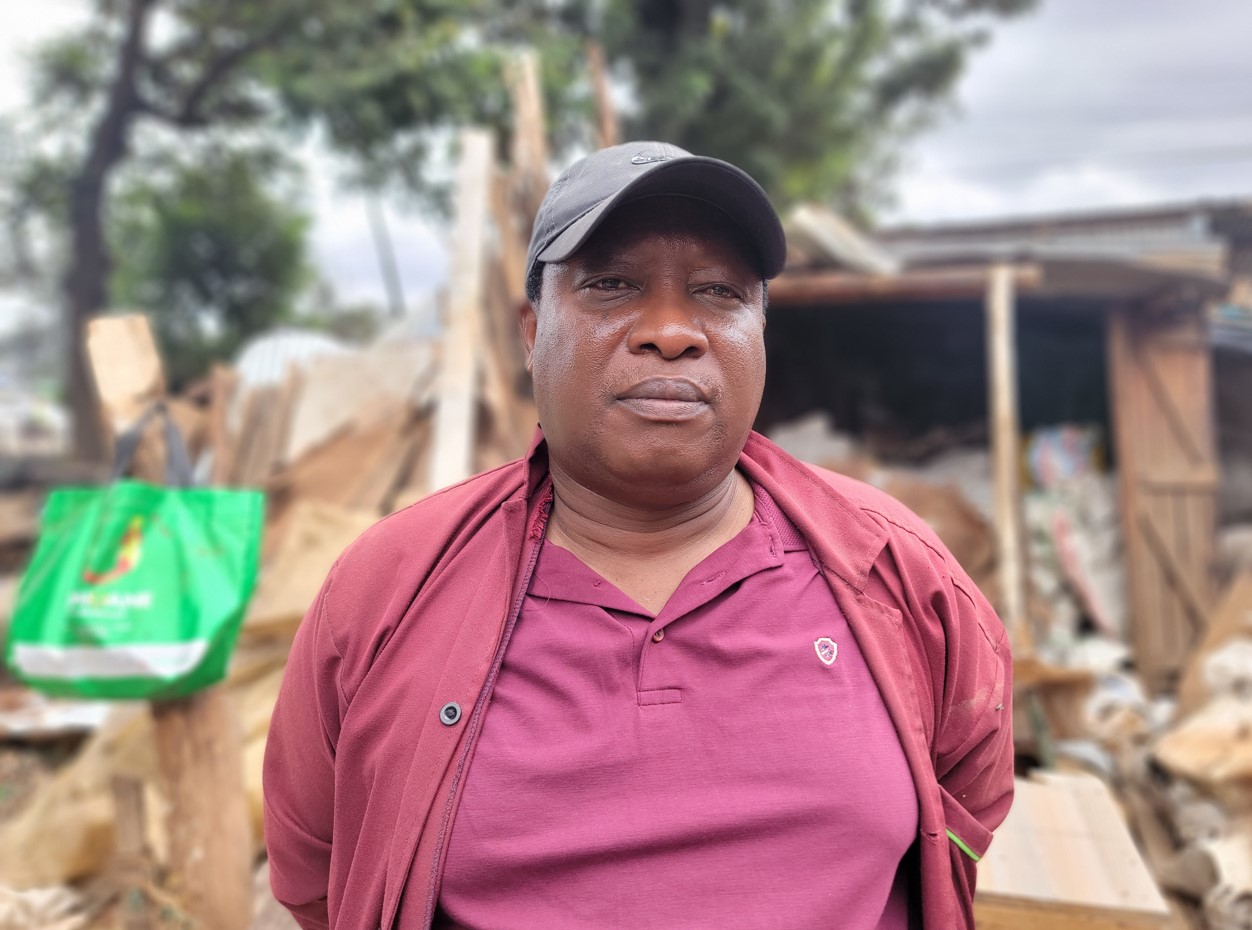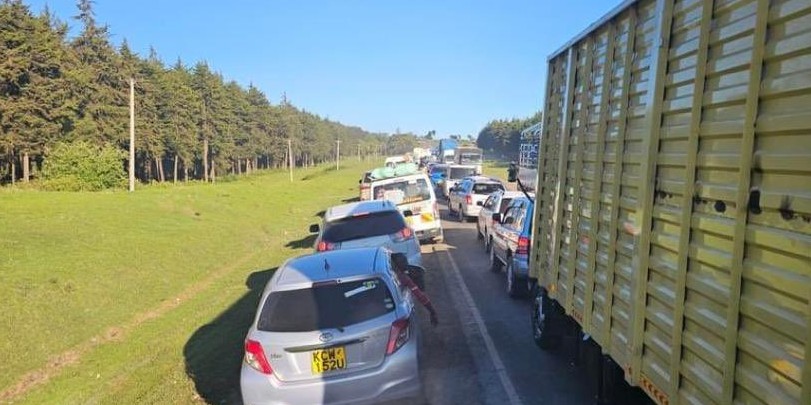Traders in Kamukunji's Kitui Village count massive losses as workshops are demolished

Most of them have lost goods worth millions of shillings
More than 800 traders at the Nairobi Handicraft Cooperative Society, in Kitui Village, Kamukunji Constituency are facing significant losses, following the demolition of their workshops built on riparian land. Many others were unable to save anything from Wednesday's demolitions.
Francis Kingoo, a 75-year-old man who has been part of society for over 60 years, laments the uncertainty and havoc the demolition has caused. "I have been here a long time and have never experienced anything like this before. I had bought skin worth 100,000 shillings, and customers had already paid for their orders. I honestly don't know where to start," said Kingoo.
More To Read
- Fire guts several houses at Kanuku informal settlement in Kamukunji’s California Ward
- Court halts ouster of Nairobi housing chief Lydia Mathia amid eviction row
- Trapped by rains: Nairobi’s flood victims face another season of uncertainty
- Kitui Village residents urge urgent action as rains delay ongoing road construction
- Night demolitions leave Nairobi shoe shiners counting losses
- Grim picture of urban safety as 688 unsafe structures flagged in Nairobi
 Francis Kingoo, one of the affected traders at the Nairobi Handicraft Cooperative Society in Kitui Village, Kamukunji Constituency. Photo: Ahmed Shafat, EV.
Francis Kingoo, one of the affected traders at the Nairobi Handicraft Cooperative Society in Kitui Village, Kamukunji Constituency. Photo: Ahmed Shafat, EV.
Kingoo, feeling overwhelmed by stress, fears this incident could lead to an early grave.
"I have lost goods worth over Sh200,000 in addition to other properties. This setback is so severe that it might drive me to an early grave," Kingoo expressed.
Kingoo, now burdened by debt and stripped of his livelihood like many others, faces the daunting task of rebuilding. Their business, a fixture for over 60 years, has been lost, leaving them uncertain of where to begin anew.
Peter Muli, another casualty of Nairobi's handicraft scene, has been a part of the community since 1992. He now risks damages over a million shillings after his establishment was demolished.
"We were informed about the demarcation of the land and told where the demolitions would stop," Muli said.
 Peter Muli, one of the affected traders at the Nairobi Handicraft Cooperative Society in Kitui Village, Kamukunji Constituency. Photo: Ahmed Shafat, EV.
Peter Muli, one of the affected traders at the Nairobi Handicraft Cooperative Society in Kitui Village, Kamukunji Constituency. Photo: Ahmed Shafat, EV.
However, when they arrived on Wednesday, they extended beyond the agreed boundaries. "Now, we are left without a means of livelihood and have incurred substantial financial losses," he said.
Muli, who reflects on his losses, emphasises that they do not oppose the demolition but urge the government to show consideration. "It's disheartening that the government has demolished our livelihoods without providing alternatives. How will our children continue their education? What will happen to our families? I appeal to them to intervene and address our plight."
Dominick Mulu, a longstanding member of the Nairobi Handicraft Society since 1987, expressed deep dismay over recent losses: "I have never witnessed such devastating losses. I have lost millions, and my colleagues have lost their livelihoods. We have children in school, and we don't know how we will manage."
Mulu lamented that they do not reside in the place; it merely serves as a workstation for them.
"We don't reside here permanently; these workshops are our livelihoods, and we return home after work. Yesterday, excavators arrived and started demolishing without any prior notice, preventing us from salvaging our belongings. This area is a tourist destination where many tourists come to purchase our cultural crafts. Now, we are uncertain about our next steps."
 Dominick Mulu, one of the affected traders at the Nairobi Handicraft Cooperative Society in Kitui Village, Kamukunji Constituency. Photo: Ahmed Shafat, EV.
Dominick Mulu, one of the affected traders at the Nairobi Handicraft Cooperative Society in Kitui Village, Kamukunji Constituency. Photo: Ahmed Shafat, EV.
Mulu voiced frustration over the communication confusion, highlighting that they have been planting trees along the river for years to mitigate flood effects. He noted that, despite rainfall since March, they have not been affected.
"We believe the government demolished more than the 30 meters they initially stated. Our plea is for the government to provide us with alternative premises because, as it stands, we don't know where to begin."
Mary Mwikali, specializing in sculpture decoration, expressed her devastation after the demolition, highlighting a significant setback for her family.
"I have been here for the past 10 years, and this is where my children's school fees come from. I have one in university, another in secondary school, and one in primary school, all depending on me. Now, I don't know how I will manage to pay their fees."
Mwikali's only plea is for the government to show mercy and offer alternatives, as they have nowhere else to go.
Chairperson of the Nairobi Handicraft Cooperative Society, David Kilonzo says the traders have incurred massive losses.
“We are extremely affected; we are still counting the losses”, said Kilozo
Since its establishment in 1970, the Nairobi Handicraft Cooperative Society has been a hub for artisans, supporting over 800 members, both employed and self-employed.
The society provides training, marketing support, and space for artisans, charging non-registered members a nominal fee of Sh100.
Many of the traders who came to Nairobi Handicraft as young men now feel the significant impact of the demolitions, as many must start over from scratch.
Nairobi Handicraft, popularly known as Kachonga, has been a tourist site for years. Many of the sculptures are exported, while others are sold locally. Tourists visit to buy crafts and tour the area, but now their source of livelihood lies in ruins.
Top Stories Today














































